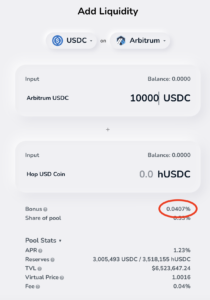
The Treasury Department said NFTs could serve as a vehicle for a variety of illicit activities.
The U.S. Treasury Department is sounding the alarm on NFTs.
On May 29, the Treasury published its first risk assessment report looking at the non-fungible token sector’s sector propensity for abuse from illicit actors.
The report highlights a plethora of risks associated with NFTs, including vulnerabilities to fraud, scams, copyright and trademark infringement, and money laundering activities.
“The assessment finds that NFTs are highly susceptible to use in fraud and scams and are subject to theft,” the report said. “Moreover, some NFT firms and platforms lack appropriate controls to mitigate risks to market integrity and to combat money laundering and terrorist financing, and sanctions evasion.”
Non-fungible tokens emerged as a significant asset class within cryptocurrency during the last bull cycle.
According to CoinGecko, 4,077 NFT collections make up a combined market cap of $72.7 billion. However, estimates as to the size of the NFT markets vary significantly, with OKX placing the figure at $36 billion — down 46% from an all-time high of $66.7 billion in November.
Non-fungible tokens differ from fungible crypto assets in that each token within an NFT collection holds unique characteristics and thus cannot be traded for other tokens on a one-to-one basis. This makes NFTs a suitable vehicle for the creation of digital art, collectibles, and tokenizing assets featuring unique attributes such as real estate.
However, with NFT collections typically featuring a low supply and illiquid secondary markets, the Treasury warns that non-fungible tokens may be particularly vulnerable to fraud and money laundering.
“The assessment finds that inadequate cybersecurity protections, challenges related to copyright and trademark protections, and the hype and fluctuating pricing of NFTs can enable criminals to perpetrate fraud and theft related to NFTs and NFT platforms,” the report said. “The report determines that illicit actors can use NFTs to launder proceeds from predicate crimes.”
Speaking during the Consensus 2024 conference in Texas, Brian Nelson, the Treasury’s undersecretary for terrorism and financial intelligence, said his department “identified NFTs as a particular source of risk” back in 2022.
“NFTs and NFT platforms… are really highly susceptible to use in fraud and scams,” Nelson said. “Many of these traditional schemes… use [NFTs] to launder proceeds generated from illicit activities.”
Looking forward, Nelsons said the department is seeking to partner with regulators in other jurisdictions to collaborate on enforcing international norms surrounding compliance within the NFT sector to combat jurisdictional arbitrage.
“We need to emphasize… working with foreign jurisdictions that have a shared understanding of the best way to regulate NFTs internationally with one clearly understood standard,” Nelson said.
- SEO Powered Content & PR Distribution. Get Amplified Today.
- PlatoData.Network Vertical Generative Ai. Empower Yourself. Access Here.
- PlatoAiStream. Web3 Intelligence. Knowledge Amplified. Access Here.
- PlatoESG. Carbon, CleanTech, Energy, Environment, Solar, Waste Management. Access Here.
- PlatoHealth. Biotech and Clinical Trials Intelligence. Access Here.
- Source: https://thedefiant.io/news/nfts-and-web3/u-s-treasury-warns-that-nfts-are-vulnerable-to-fraud-and-money-laundering
- :is
- $UP
- 2022
- 2024
- 29
- 7
- a
- abuse
- activities
- actors
- alarm
- an
- and
- appropriate
- arbitrage
- ARE
- Art
- AS
- assessment
- asset
- asset class
- Assets
- associated
- At
- attributes
- back
- basis
- BE
- BEST
- Billion
- Brian
- bull
- CAN
- cannot
- cap
- challenges
- characteristics
- class
- clearly
- CoinGecko
- collaborate
- collectibles
- collection
- collections
- combat
- combined
- compliance
- Conference
- Consensus
- controls
- copyright
- could
- creation
- Crimes
- Criminals
- crypto
- crypto-assets
- cryptocurrency
- Cybersecurity
- cycle
- Department
- determines
- differ
- digital
- Digital Art
- down
- during
- each
- emerged
- enable
- enforcing
- estate
- estimates
- evasion
- Featuring
- Figure
- financial
- Financial Intelligence
- financing
- finds
- firms
- First
- For
- foreign
- Forward
- fraud
- from
- Fungible
- generated
- Have
- High
- highlights
- highly
- his
- holds
- However
- HTTPS
- Hype
- illicit
- in
- In other
- Including
- infringement
- integrity
- Intelligence
- International
- internationally
- ITS
- jurisdictions
- Lack
- Last
- Laundering
- looking
- Low
- make
- MAKES
- Market
- Market Cap
- Markets
- May..
- Mitigate
- money
- Money Laundering
- Need
- NFT
- NFT collection
- NFT collections
- NFT Markets
- NFT platforms
- NFTs
- non-fungible
- non-fungible token
- non-fungible tokens
- norms
- November
- of
- OKX
- on
- ONE
- Other
- particular
- particularly
- partner
- placing
- Platforms
- plato
- Plato Data Intelligence
- PlatoData
- plethora
- pricing
- proceeds
- published
- real
- real estate
- really
- Regulate
- Regulators
- related
- report
- Risk
- risk assessment
- risks
- s
- Said
- Sanctions
- scams
- secondary
- Secondary Markets
- sector
- seeking
- serve
- shared
- significant
- significantly
- Size
- some
- Source
- standard
- subject
- such
- suitable
- supply
- Surrounding
- susceptible
- Terrorism
- terrorist
- terrorist financing
- texas
- that
- The
- The Defiant
- theft
- These
- this
- Thus
- to
- token
- tokenizing
- Tokens
- traded
- trademark
- traditional
- treasury
- Treasury Department
- typically
- u.s.
- U.S. Treasury
- u.s. treasury department
- understanding
- understood
- unique
- use
- variety
- vary
- vehicle
- Vulnerabilities
- Vulnerable
- Warns
- Way..
- webp
- with
- within
- working
- youtube
- zephyrnet









![[SPONSORED] Celebrate WX Network’s official rebrand with their largest WX token giveaway of the year! [SPONSORED] Celebrate WX Network’s official rebrand with their largest WX token giveaway of the year! PlatoBlockchain Data Intelligence. Vertical Search. Ai.](http://platoblockchain.com/wp-content/uploads/2022/11/Launch-your-own-token-for-your-chance-to-win-150000-WX-tokens-360x188.png)


